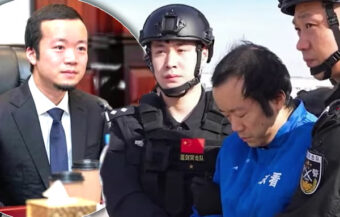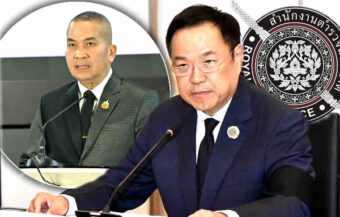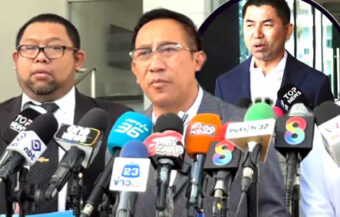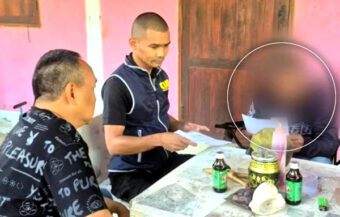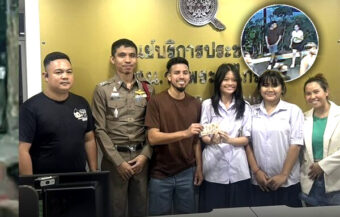Ministry averts airport taxi revolt with new ride-hailing app, crackdown on illegal drivers and upgraded facilities. Four-part plan separates app cars from taxis, enforces licensing rules and promises fairness. Talks continue ahead of a new July deadline.
The Ministry of Transport appears to have averted a confrontation with Bangkok’s public taxi drivers and a potential shutdown of both Suvarnabhumi and Don Mueang airports. On Thursday, the Deputy Minister of Transport offered significant concessions to taxi drivers operating at the country’s main airports. In addition to upgraded facilities and services, the drivers will now be supported by a new ride-hailing app operated by Airports of Thailand (AOT). Crucially, the app will not charge service fees, addressing a key concern raised by drivers. Taxi driver representatives agreed to explore the proposals further. Formal discussions between the group and the government are scheduled for July. Among the proposals are revised rules for both traditional taxis and ride-hailing services. A full regulatory review was ordered by Deputy Prime Minister and Minister of Transport Suriya.
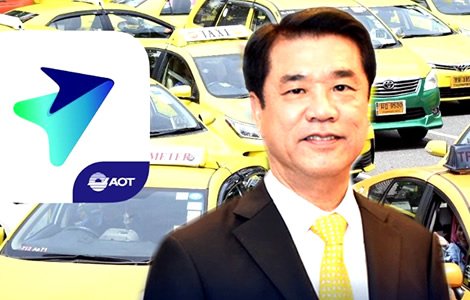
The Ministry of Transport has unveiled urgent new steps to defuse rising tensions between airport taxi drivers and app-based ride services. On Thursday, at the instigation of Transport Minister Suriya, Deputy Transport Minister Surapong Piyachote held high-stakes talks with the Professional Association of Public Taxi Drivers. The meeting was called to prevent possible airport blockades and mass protests at Suvarnabhumi and Don Mueang.
Taxi drivers claim they’re being squeezed out by digital platforms. Services like Grab have flooded airport zones with cheaper, more convenient options.
Drivers threatened airport shutdown over lost income as Transport Ministry moved fast with four-point response
Many public drivers report long wait times—often more than two hours—just to pick up one passenger. They also say fares have dropped while fuel and maintenance costs continue to rise.
Meanwhile, app drivers—many using private cars—operate with fewer rules. They avoid airport taxi queues and sometimes undercut regulated rates. As a result, traditional drivers believe they’re losing both their customers and dignity.
Pressure boiled over this month. Earlier, on May 21, dozens of drivers threatened to blockade both major Bangkok airports. The warning came with a deadline: fix the system or face disruption. In response, the Ministry acted quickly. Within 72 hours, officials announced a four-part plan to restore order and fairness.
Each part addresses a different problem: competition, safety, awareness, and digital inclusion. The measures also aim to prevent further confrontation between public drivers and app-based rivals.
Firstly, airports will now enforce physical separation between licensed taxis and app-based vehicles. At Suvarnabhumi, the arrivals area on the ground floor will be reorganised. Taxis will get newly designated pickup lanes, clearly marked and monitored. App vehicles will use separate zones in the long-term car park.
Zone D, which houses long-term parking, will become the main pickup area for registered Grab drivers. Access will be controlled using barrier gates. Only drivers on an approved list will be allowed in. Each car’s licence plate will be scanned and verified before entry.
Meanwhile, Airports of Thailand (AOT) will install AI-powered surveillance. Cameras will detect and identify illegal pickups in real-time. Any unauthorised app driver will be flagged instantly. The system links directly with the Department of Land Transport’s central vehicle database.
Crackdown on illegal operators launched with AOT patrols, plainclothes officers and licence verification
Secondly, enforcement will increase. AOT will boost patrols across terminal areas, especially in arrival zones. Plainclothes officers will monitor suspected rule-breakers. If caught, illegal drivers will be fined or blacklisted.
At the same time, Transport Ministry inspectors will review airport access permits. They will also check whether private cars used by app drivers are properly licensed. Many are not. According to DLT figures, up to 4,000 vehicles currently pick up airport passengers without commercial registration.
Deputy Minister Surapong said the enforcement push is not about punishing app users. “We are not trying to ban competition,” he said. “But everyone must follow the same rules. The goal is fairness for all.”
Thirdly, public awareness campaigns are already underway. AOT has begun placing signs near baggage claim and exit doors. These signs point passengers to authorised taxi ranks. Electronic boards display live wait times and fare estimates.
In addition, airline staff will remind travellers that public taxis remain legal and reliable. Ground crews at Suvarnabhumi and Don Mueang have been briefed. They will now help direct tourists to proper pickup areas.
Importantly, AOT will assign extra staff to manage queues. These workers will assist foreigners, monitor waiting times, and ensure no app drivers enter restricted areas.
New SAWASDEE app to give metered taxis a no-fee digital edge and reduce passenger waiting times at airports
Fourthly, the Ministry is introducing a new ride-hailing app: “SAWASDEE by AOT.” The platform allows passengers to book metered taxis via smartphone. It also shows vehicle locations and estimated arrival times. The app is free to use for both drivers and passengers.
Unlike private apps, SAWASDEE does not charge a commission. It simply connects riders with nearby taxis. Drivers will get bookings based on proximity and availability. That means less empty cruising and faster service.
Currently, the app is in pilot testing at Suvarnabhumi. However, officials expect a national rollout within three months. The DLT is working with AOT to fine-tune the interface and ensure driver compliance.
AOT Acting Director-General Pawina Jariyathitipong stressed that the app levels the playing field. “This gives traditional taxis a digital edge,” she said. “They can now compete on equal footing with Grab and others.”
Daily airport transport figures highlight the growing pressure. Suvarnabhumi sees over 6,000 licensed taxi rides per day. Another 5,000 passengers use app-based services like Grab. On top of that, roughly 4,000 private cars operate informally through apps or phone bookings.
Surge in unregulated private drivers sparks facility upgrades and taxi union demands for enforcement
Most of those private drivers are unregulated. They do not carry commercial licences, nor do they pass regular inspections. Yet they now control more than 25% of the airport market. That figure has doubled in just two years.
Taxi associations say this trend is unsustainable. “We’re not asking for favours,” one driver said. “But we need protection from illegal competition. Otherwise, we’re done.”
In response, the Ministry has also promised upgrades to taxi facilities. Holding areas will get better lighting, clearer signs, and more toilets. Drivers will also get shaded waiting zones and improved dispatch systems.
Some of these changes are already visible at Suvarnabhumi. Metal benches have been added. New monitors show real-time pickup data. However, full renovations are expected to finish later this year.
Transport Minister Suriya said the Ministry is also reviewing laws that date back decades. “We need new rules for a new era,” he said. “Digital platforms are here to stay, but so are taxis. The law must reflect both.”
Ministry prepares unified legal framework for apps and taxis with more talks and a July target for agreement
Work is underway on a new legal framework for ride-hailing. The DLT and AOT are drafting updated regulations covering licensing, insurance, and safety. The goal is to have a unified system where both taxis and apps play by the same rules.
Meanwhile, discussions with driver unions continue. More meetings are scheduled over the next three weeks. Officials are also consulting app companies and vehicle leasing firms. They hope to finalise a long-term agreement by July.
Deputy Minister Surapong remains optimistic. “This is a compromise,” he said. “It’s not perfect, but it’s a step forward. If we all cooperate, this can work.”
However, not everyone is convinced. Some taxi drivers say the measures are too little, too late. Others want tougher crackdowns on private cars operating illegally. There are also concerns about whether the new app will catch on with tourists.
Still, most agree the proposal is a good start. By taking action now, the government hopes to avoid chaos later. With peak travel season approaching, any airport disruption could damage Thailand’s fragile tourism recovery.
AOT to track results in real-time as the future of mobility and tourism hinges on the success of a compromise plan
AOT officials say they’re monitoring the situation closely. Real-time feedback from drivers and passengers will help fine-tune the plan. If necessary, they’re ready to add more staff or shift pickup zones.
In the end, this isn’t just about taxis or apps. It’s about fairness, order and the future of urban mobility in Thailand. For many drivers, it’s also about survival.
Police crack the whip on Bangkok taxis just 24 hours before showdown meeting over Airport closure threat
Government will not tolerate any attempt to blockade Suvarnabhumi Airport by taxis over ride-hailing apps
Bangkok taxis threaten to close down Suvarnabhumi Airport if Ministry does not ban ride-hailing apps
Tourism Ministry should hold its nerve and pursue long-haul markets with a higher visitor spending strategy
The next few weeks will be critical. If tensions cool, the plan could serve as a national model. But if enforcement slips or rules are ignored, protests could return. And next time, they might be far more disruptive.
For now, the threat of airport shutdowns has eased. But the underlying issues remain. Solving them will take more than signs and software. It will take political will, regulatory muscle and constant oversight.
Join the Thai News forum, follow Thai Examiner on Facebook here
Receive all our stories as they come out on Telegram here
Follow Thai Examiner here
Further reading:
Bangkok taxis threaten to close down Suvarnabhumi Airport if Ministry does not ban ride-hailing apps
Confidence and trust in Thailand damaged by Chinese VIP tourist services advertised online
Viral Chinese video says VIP arrival with a police escort can be bought when holidaying in Thailand
Royal Thai Police Sergeant Major arrested on Ko Samui, charged with the rape of female detainee












